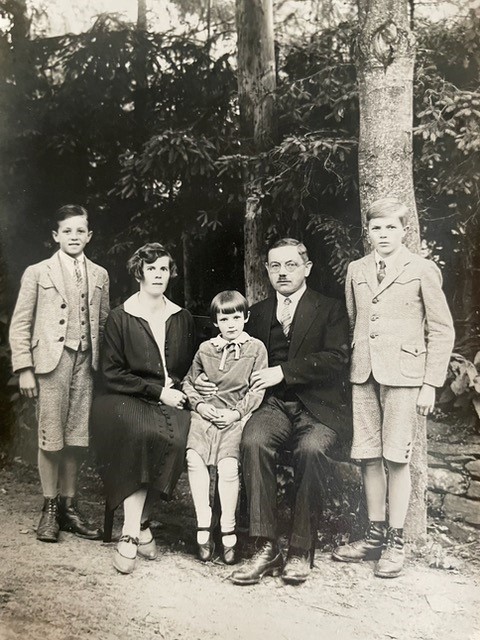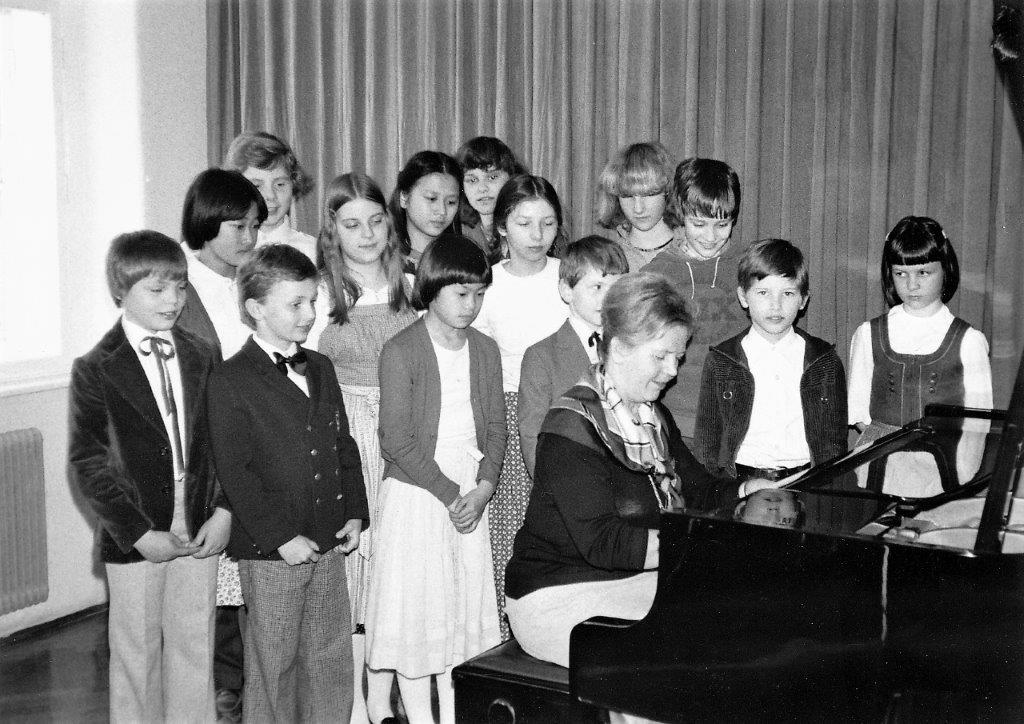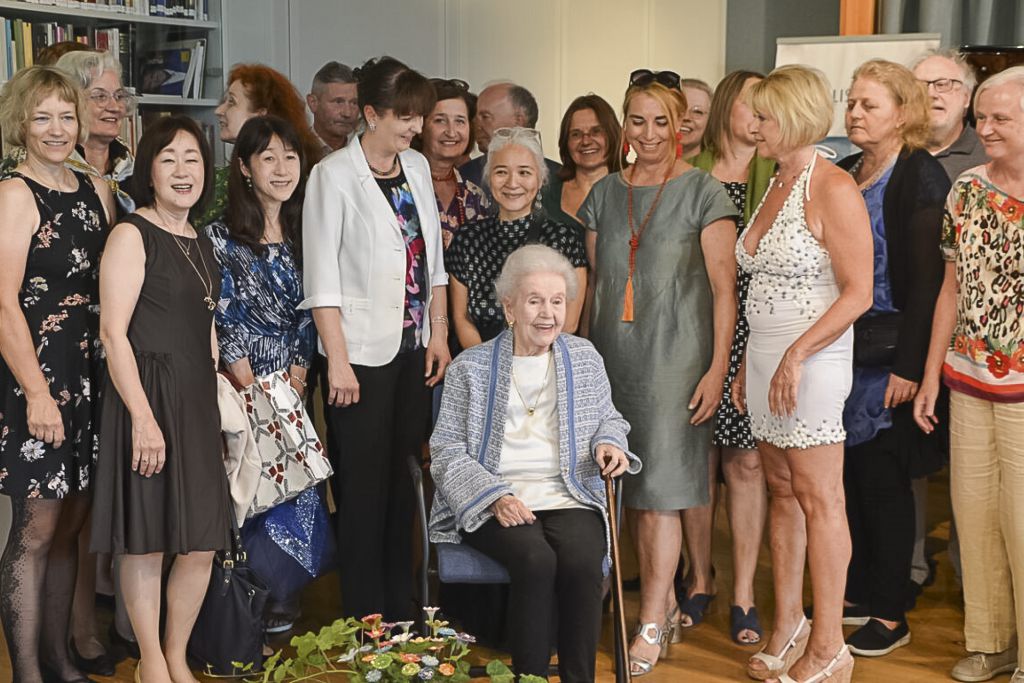What do Judy Garland, Georg Kreisler, and Doris Day have in common? These artists were all born in 1922, as was our jubilarian! On 7 July, a total of 35 former students (including two who’d flown in from Tokyo specifically for the occasion) plus an equal number of close friends came together in order to celebrate the unbelievable 100th birthday of Professor Kramer-Preisenhammer, our country’s most famous teacher of young pianists during the 20th century’s second half, who joined us in remarkably and enviably robust health and with the same elegance that we learned to take for granted many decades ago.

Renate Preisenhammer, born in Bergreichenstein in the Bohemian Forest on 7 July 1922, went to Vienna in 1939 at the tender age of 17 in order to begin studying piano with Josef Dichler at what was then the Reichshochschule für Musik (later on the Akademie, then the Hochschule, now the mdw) on the advice of an astute German teacher. In order to finance her studies, she began teaching privately—and thus gathering valuable experience—quite early on.
Her two brothers did not return from the Second World War, and 1945 saw her parents—like so many Sudeten Germans—given exactly two hours to leave Czechoslovakia with one suitcase each. Renate’s parents ended up in a camp in Bavaria, following which she brought them to stay with her in Vienna, where her father passed away shortly thereafter. After completing her degrees in 1945 (state teaching examination) and 1949 (final examination as a performer), she embarked upon an active concert career all over Europe both as a soloist and in a piano duet with Erika Dichler-Sedlacek as well as with chamber music partners on various instruments, a career that is extensively documented on numerous, mostly German broadcast recordings. Together with her former teacher Josef Dichler, she published the piano tutor Die Einführung in das polyphone Spiel [An Introduction to Polyphonic Playing]. In the late 1940s, Renate Preisenhammer met Herbert Kramer, who was soon to be in high demand as an acoustics and soundproofing expert and who became her husband from 1949 until his death in 2000.

In 1960, Kramer-Preisenhammer was hired by the Academy of Music and Performing Arts as a successor to the legendary Marianne Lauda. Taking over her predecessor’s preparatory class, which aimed to train children until they were ready to enter the performance degree programme (which was possible at age 15 back then), represented a huge responsibility, since the point was to lay a solid technical and musical foundation from the very beginning that could be reliably built upon year by year. At the time, no professor had any obligation whatsoever to offer the institution “added value” above and beyond their official responsibilities. But right from the start, Renate Kramer-Preisenhammer worked to build cooperative relationships with entities such as the publisher Doblinger, in whose baroque hall many student concerts—primarily featuring works by Austrian contemporary composers—proceeded to take place. It was also at her initiative that the province of Burgenland became home to cultural centres where young talents from Vienna, Lower Austria, and Burgenland itself were given opportunities to perform.

Professor Kramer-Preisenhammer also worked to nurture a good climate within her class for children and adolescents, planting the notion of being colleagues and not competitors in all of our minds at a young age. This is a tough thing for a teacher to accomplish even with adult students, and it’s all the more difficult with (occasionally quite ambitious) parents in the picture. After every class recital, we celebrated together at Restaurant Smutny on Elisabethstraße, and I’ll never forget the jealous astonishment of a colleague from another class who couldn’t quite believe that we did.
In the academic year of 1982/83, Professor Kramer-Preisenhammer switched completely from the preparatory programme to the education department, where she taught as a full professor until her retirement in 1990. Over the decades, her outstanding achievements have been recognised in numerous ways including honorary membership in the Mozart Society of Vienna (1983), the Cultural Prize (1985) and Medal of Honour (2007) of the province of Burgenland, and the Golden Commemorative Medal of the mdw (2008). She was also made an honorary member of the Liszt Society in Raiding in 2012. Alongside her activities as a professor, she received frequent invitations to serve on piano competition juries both in Austria and abroad, such as at the Liszt Competition in Lucca. To this day, our jubilarian commutes between her two residences in Bad Sauerbrunn and Kufstein every six months, and she still organises all of her everyday necessities on her own.

